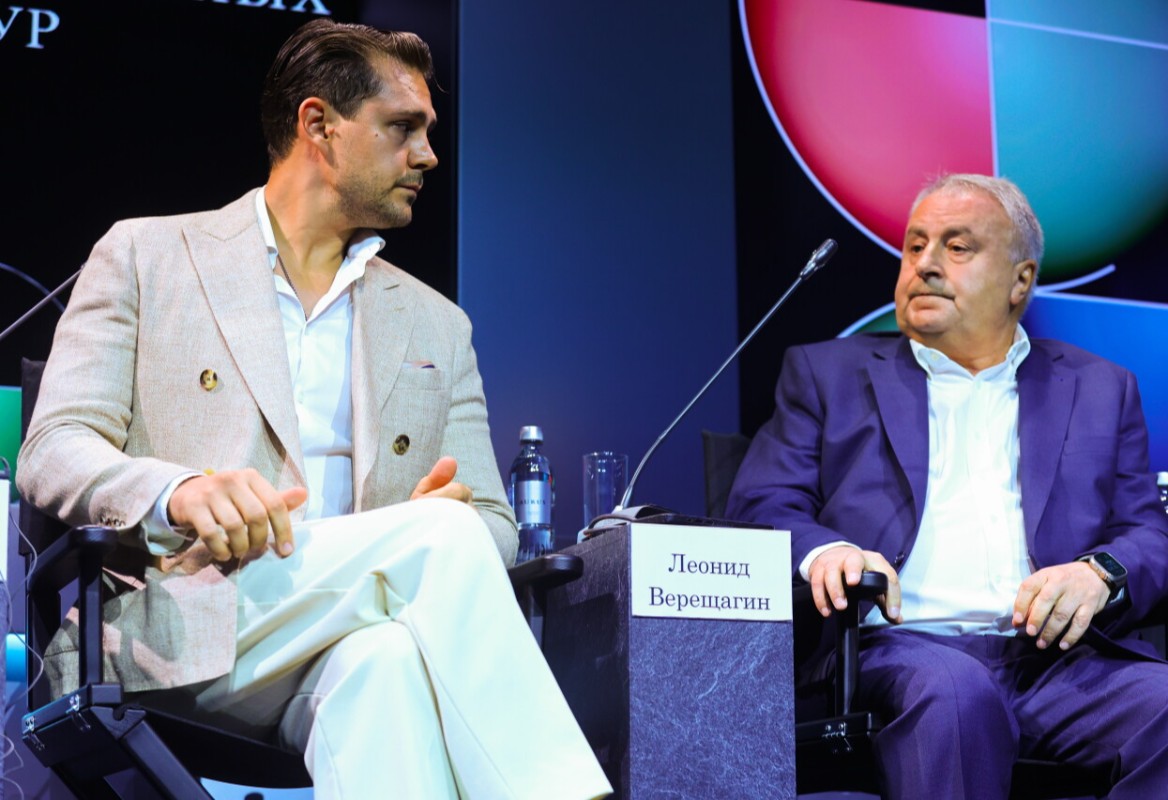A panel discussion titled "A Common Cultural Space: Is It Possible Today?" took place at the XI St. Petersburg International United Cultures Forum. Participants examined the prospect of uniting the cultural sphere on the international stage, as well as across generations and traditions.
The discussion was held in the Green Hall of the Hermitage’s General Staff Building and was organized within the program of the Cinema thematic section, curated by Fyodor Sosnov, Executive Director of the Cinema Fund. Speakers reviewed examples of successful projects produced collectively with international specialists and discussed what kind of cinema can bring audiences together around the world.
Participants included Alexander Pankin, Deputy Minister of Foreign Affairs of the Russian Federation; Alexander Zharov, CEO of the Gazprom-Media holding; Svetlana Balanova, CEO of National Media Group JSC; Leonid Vereshchagin, producer and CEO of the film company Studio TriTe; stage and screen actor and producer Milos Bikovic; and Fatemeh Mohammadi, Director of the Iranian Museum of Cinema.
The event was moderated by journalist Ivan Kudryavtsev. He characterized cinema as a team process: "I have produced and hosted the program Industry of Cinema for 16 years, and I see that cinema is the art of large processes, in both economics and creativity. That is why the films we call masterpieces are also masterpieces of teamwork."
Alexander Pankin, Deputy Minister of Foreign Affairs of the Russian Federation, shared his view of what a unifying film culture should be: "True cinema is about ideas, feelings, and values. It makes us think and empathize, and it shapes our personality and our attitude toward ourselves, society, the country, and the world."
Alexander Zharov, CEO of Gazprom-Media, spoke about building cultural cooperation between Russia and the East, as well as the country’s great potential: "If you look at the history of Russia, a country with a great culture, there have always been individuals who created this space, whether Diaghilev, Eisenstein, or Mikhalkov. These are figures who moved the emotions of millions and billions, making Russian culture global culture. I am sure this process will continue, and we will see many more exciting things."
The speakers noted that screening rights for most Russian films have now been acquired in Germany, France, Switzerland, Lithuania, Latvia, Estonia, and China. These include World Champion, Blood Type, Going Vertical, Ice, and Stalingrad. Svetlana Balanova, CEO of National Media Group JSC, highlighted the particular success of Red Silk, a Russian-Chinese co-production.






